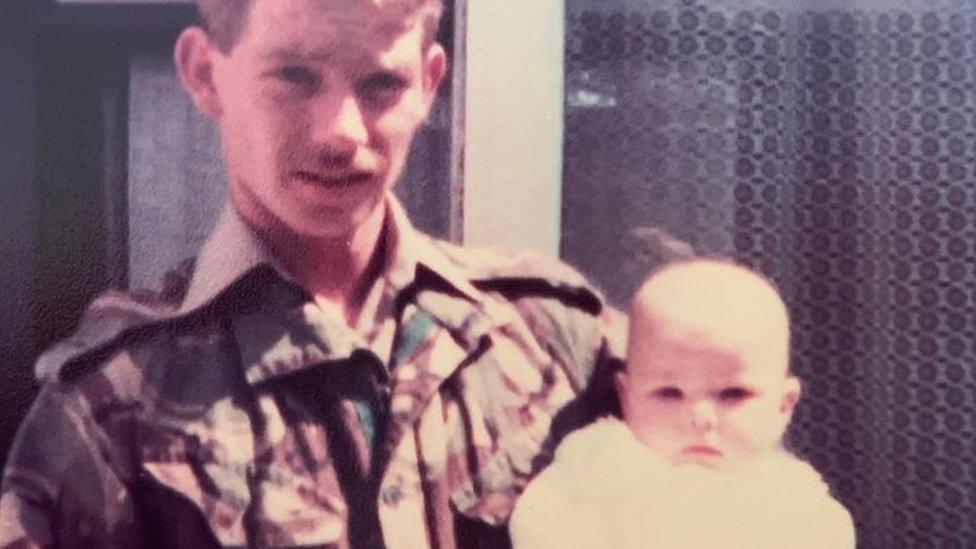Soldier who shot child killed himself waiting for therapy
- Published
George Du Preez developed post-traumatic stress disorder (PTSD) after mistakenly shooting a child
A soldier who mistakenly shot a child while on duty had waited five years for therapy when he took his own life, his wife has said.
George Du Preez, who served as a private in Afghanistan, developed post-traumatic stress disorder (PTSD) after the incident in 2011.
His wife Katriona said he did not know he was firing at the child at the time.
Cwm Taf Morgannwg health board said it was committed to helping veterans with mental health issues.
Meanwhile the Army said service personnel health was taken "extremely seriously" but added it would not comment on the specifics of individual cases.
Mr Du Preez was born in Namibia and later joined the British Parachute Regiment, with whom he served in Afghanistan as a private.
Mrs Du Preez said she received a call from her husband in February 2011 where he asked her if God would forgive someone who had killed a child.
"Instantly thinking he was talking about the Taliban, I told him that I thought it was deplorable," she said.
But when he returned home, her husband told her more.
"It transpires that when George was being ordered to shoot a target, it was radioed through shortly afterwards that the target that he had shot was that of a child," she said.
"That was the key trigger for his PTSD."
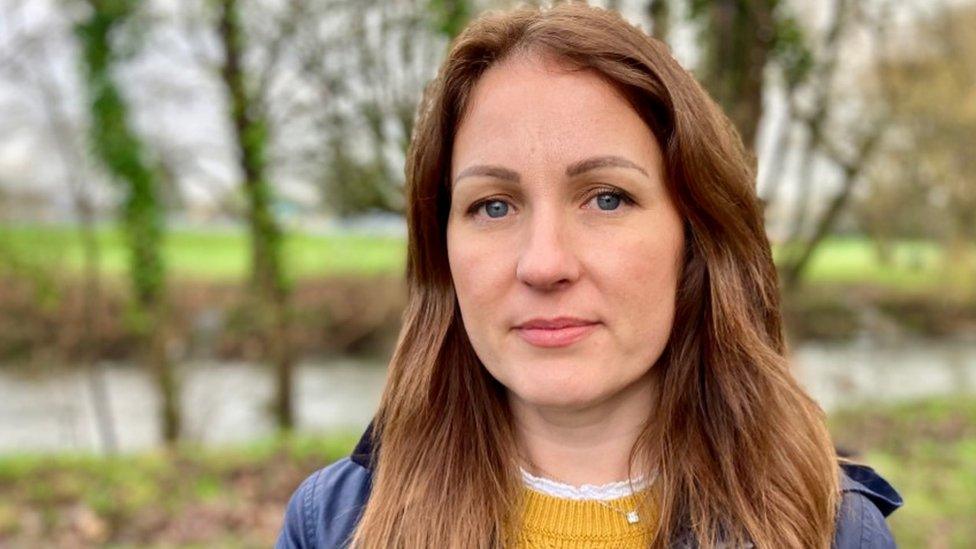
Katriona Du Preez says the family received "no explanation" for why her husband's care was delayed
He received military and civilian treatment while living in Colchester, Essex, where his regiment was based, and was medically discharged from the Army in 2014 with PTSD.
The couple and their young son moved to Bridgend in south Wales to be closer to Mrs Du Preez's family, and were told the ex-soldier's treatment plan would be transferred and he would be seen by mental health professionals within weeks.
But that did not happen, said Mrs Du Preez, 42, who claimed her husband was placed "back of the queue" for support upon arriving in Wales.
"He was a really sweet guy, pretty shy - very religious," she said.
"He had seen some really awful things.
"There was an awful lot of paranoia and flashbacks."
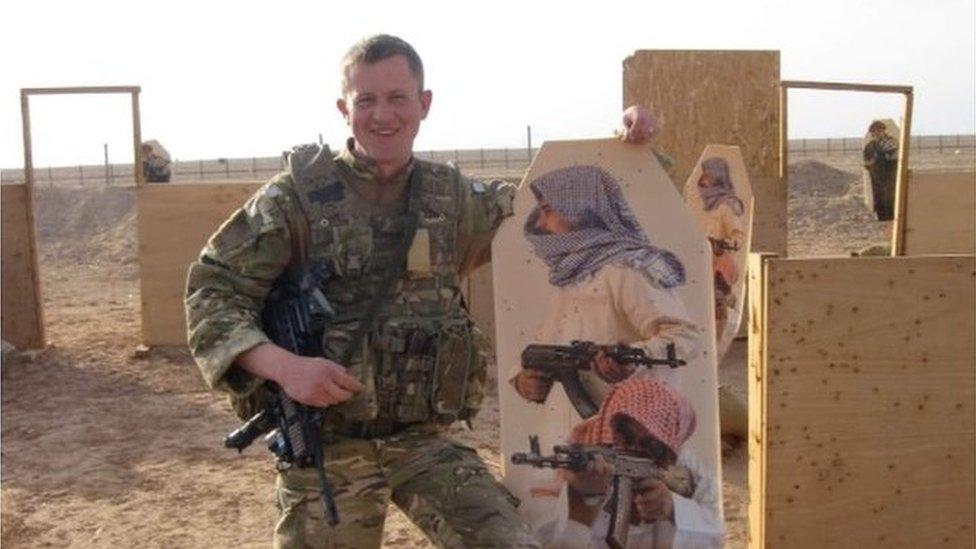
George Du Preez was diagnosed with PTSD after returning from Afghanistan
Shortly after the move, Mr Du Preez had an emotional breakdown. He received medication and was re-admitted to hospital several times between 2014 and 2019, but never received the therapy he was waiting for.
Aged just 37, he was found dead at home by his wife in November 2019 having killed himself.
"He was actually still on that waiting list for treatments when he died," she added, and said Cwm Taf Morgannwg health board had never explained why her husband's treatment had to start from scratch after moving to Wales.
In December, a coroner ruled actions by Mr Du Preez's GP, mental health services and the probation service in the weeks before his death did not contribute to his death.
However, Mrs Du Preez said she believed more could have been done to provide him with veteran specific mental health care in the years before his death.
'Postcode lottery'
"It's frustrating because I know there are people receiving treatment with similar conditions over the border in England, and it feels very much like a postcode lottery," said Mrs Du Preez, who works as a civil servant.
"I've got a little boy at home who doesn't have daddy."
According to Welsh government figures, there are about 115,000 veterans in Wales, and a higher percentage in Wales than in England.
The Welsh government said it set up Veterans NHS Wales in 2011 to provide dedicated therapists for veterans, and said it introduced a new scheme in 2023 to improve GP services for ex military personnel and all ensure health boards had an armed forces champion.
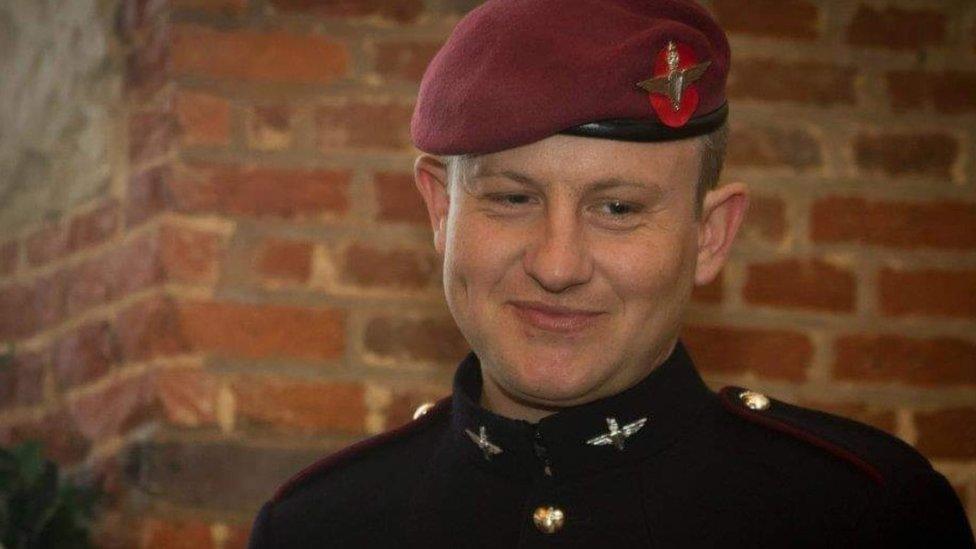
George Du Preez struggled with his mental health after unknowingly shooting at a child target in Afghanistan
But Dave Singletary, of the Parachute Regimental Association in Wales, said therapy lists were full and Wales did not have the facilities to offer the same care as was available in England.
"The care and treatment that they require could be available, should be available, but isn't available - and I can't find an excuse for that," he added.
The Army said it had "improved the support provided" to help identify mental health distress and seek support earlier.
Cwm Taf Morgannwg University Health Board said it extended "heartfelt condolences to George's family", adding: "As a health board, we are committed to the Armed Forces Covenant and provide a range of services to veterans with mental health needs."
If you are affected by any of the issues in this article you can find details of organisations that can help via the BBC Action Line.
- Published12 May 2022
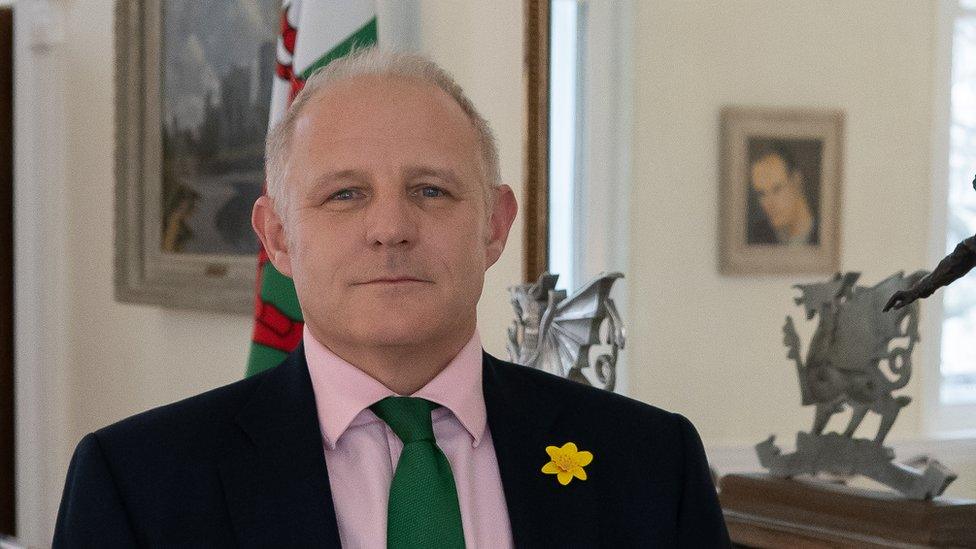
- Published19 August 2021
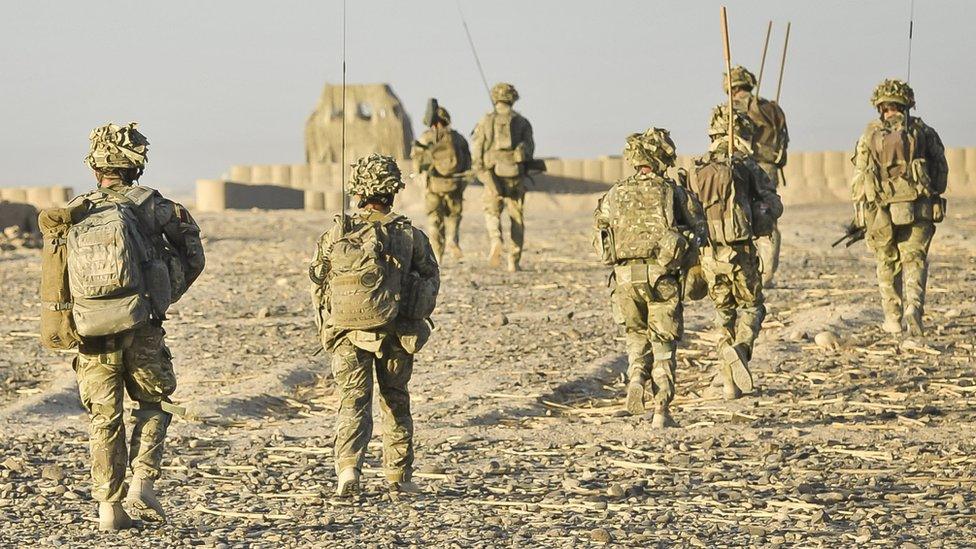
- Published8 November 2021
